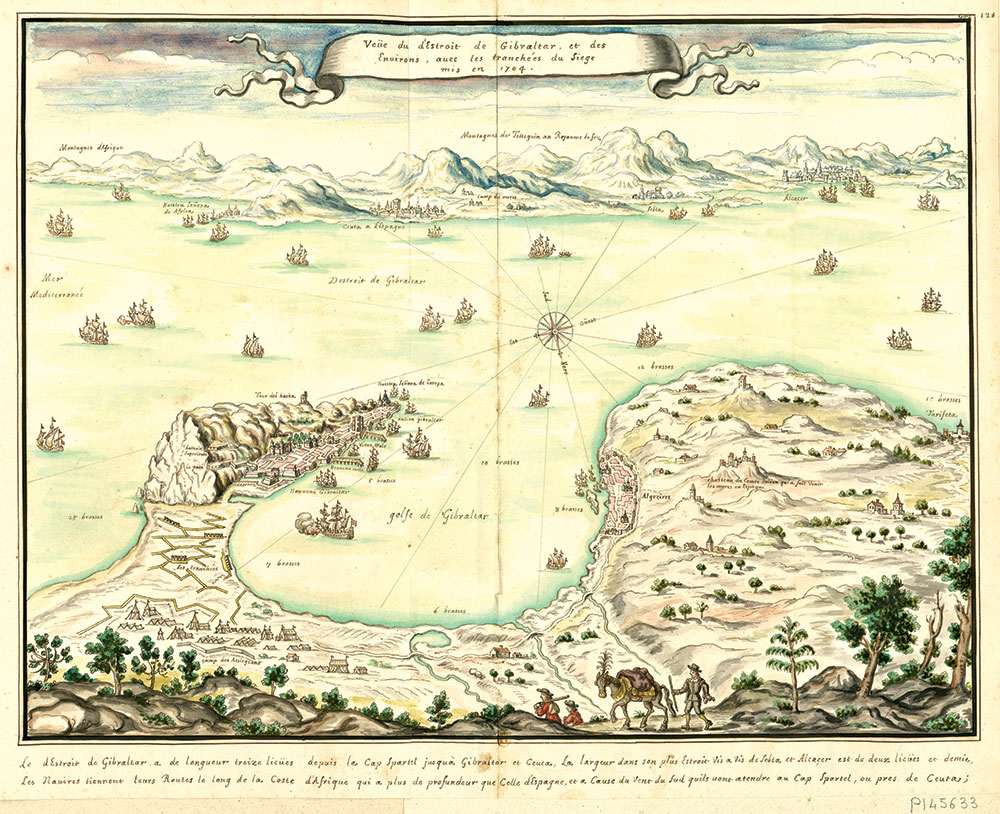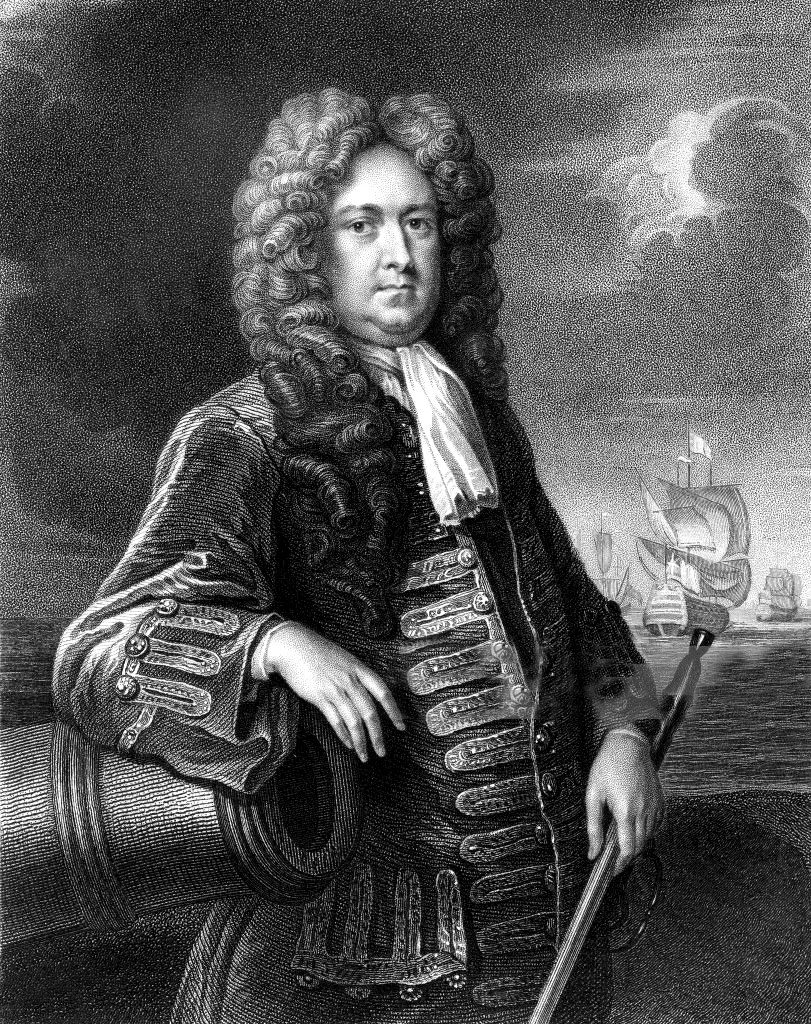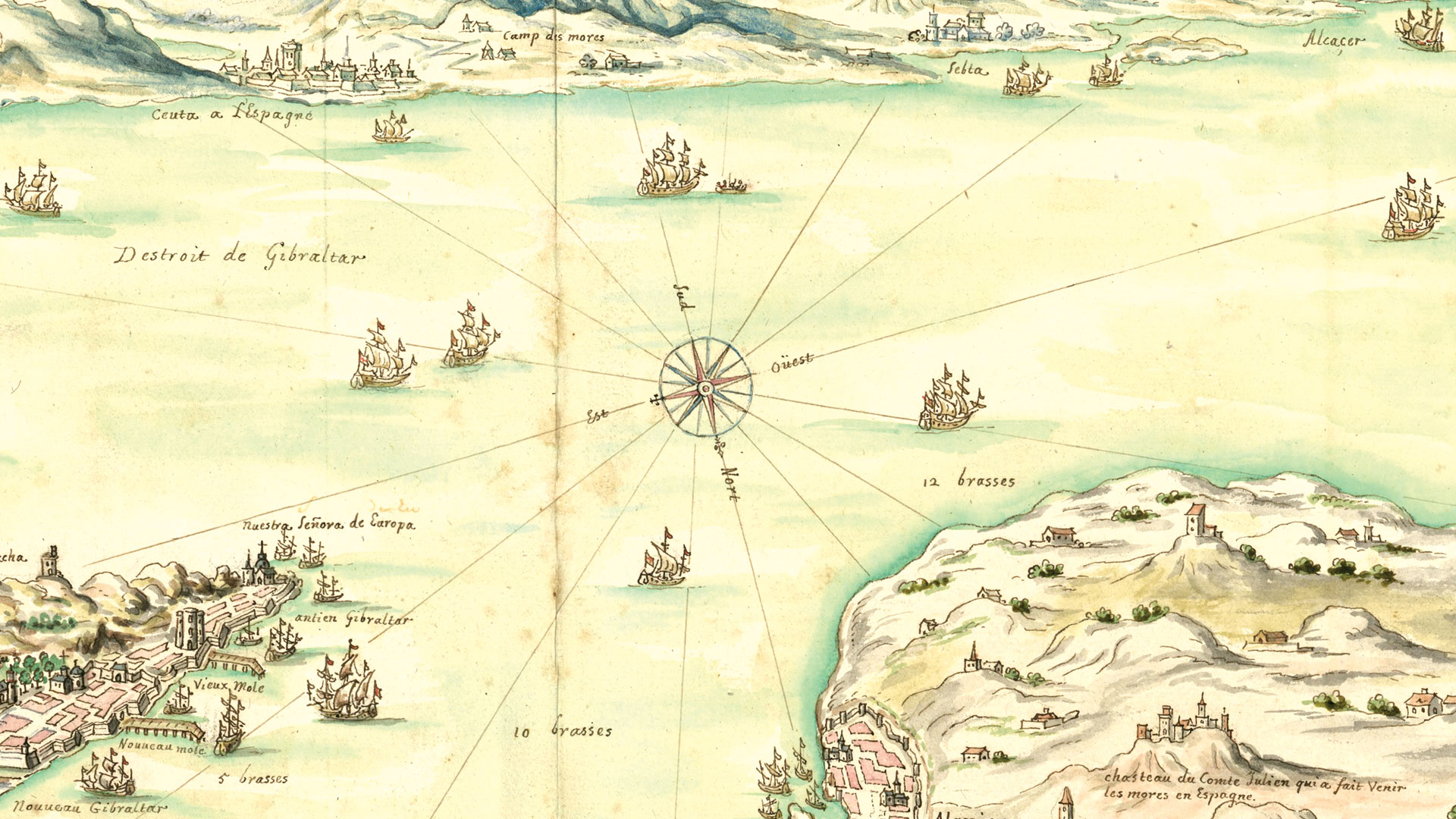About two in the afternoon, the enemy’s van gave way to ours, and the battle ended with the day, when the enemy went away, by the help of their gallies, to the leeward. In the night, the wind shifted to the northward, and in the morning to the westward, which gave the enemy the wind of us.

We lay by all day, within three leagues one of another, repairing our defects; and at night they filled and stood to the northward. On the 15th in the morning, the enemy was got four or five leagues to the westward of us; but a little before noon we had a breeze of wind easterly, with which we bore down on them till four o’clock in the afternoon; it being too late to engage, we brought to, and lay by with our heads to the northward all night. On the 16th in the morning, the wind being still easterly, hazy weather, and having no sight of the enemy or their scouts, we turned and bore away to the westward, supposing they would have gone away for Cadiz; but being advised from Gibraltar, and the coast of Barbary, that they did not pass the Straits, we concluded they had been so severely treated, as to oblige them to return to Toulon. The admiral says, we must do the officers the justice to say, that every man in the line did his duty, without giving the least umbrage for censure or reflection; and that he never observed the true English spirit so apparent and prevalent in our seamen as on this occasion. This battle is so much the more glorious to her Majesty’s arms, because the enemy had a superiority of six hundred great guns, and likewise the advantage of cleaner ships, being lately come out of port, not to mention the great use of their gallies, in towing on or off their great ships, and in supplying them with fresh men, as often as they had any killed or disabled. But all these disadvantages were surmounted by the bravery and good conduct of our officers, and the undaunted courage of our seamen.

Although on the return of Sir George to England, he was graciously received by the Queen and the Lord High Admiral; and although the victory was completely destructive of the French power by sea, it could not impress on the minds of the Whig party a sufficiently due sense of it to induce them even to mention it in their addresses to the Queen, on the success of her arms. The memorable battle of Blenheim had been added to the victories of the Duke of Marlborough that year, and the Whigs were either really or politically insensible of any other. The Tories were more just, as will appear by the following address, presented by Sir Richard Vivyan, Bart, and James Buller, Esq. Knights of the shire for the county of Cornwall, and written by the poet Granville, afterwards Lord Lansdown :
TO THE QUEEN’S MOST EXCELLENT MAJESTY :
Permit, Madam, the landlords, bounders, adventurers, and whole body of the tinners of Cornwall, with hearts full of all dutiful acknowledgments, to approach your Majesty, who want words to express their gratitude, their joy, their admiration, for the wonderful success of your Majesty’s arms, under the conduct of his grace the Duke of Marlborough.
Never was success greater in all its circumstances, a design more secretly carried on, so effectually supported from home, so vigorously executed abroad, on which no less than the liberty of Europe depended; a cause worthy the best of princes, a victory worthy the greatest of generals, which will transmit to all future ages your Majesty’s name truly great; great for deliverance, not for oppression. But it is not enough that your Majesty triumphs at land; to complete your glory, your forces at sea have likewise done wonders. A fleet of much inferior, in so ill a condition! by being so long out, in such want of ammunition, by taking Gibraltar without gallies, which were of so great service to the enemy; all these disadvantages considered, nothing certainly could equal the conduct of your admiral, the bravery of your officers, the courage of your seamen during the engagement, but their conduct, their bravery, and their courage after it, whereby they perfected a victory, which otherwise, in human probability, must have ended in an overthrow; an action as great in itself as happy in its consequences. May your Majesty never want such commanders by sea and land, such administration in the management of the public treasure, which so much contributes to the success of armies and of fleets.
May your Majesty never want, what sure you never can, the hearts, the hands, the purses, of all your people. Had not we, Madam, of this country, inherited the loyalty of our ancestors, which your Majesty has been pleased so graciously to remember, such obligations must have engaged the utmost respect; and such all of us will ever pay to your sacred person and government, as with one voice we daily pray,
LONG LIVE QUEEN ANN, to whom many nations owe their preservation.
The ministry, who should hate been the most sensible of Sir George’s services, and among the first to acknowledge them, were alarmed by this and similar addresses; for while the House of Lords, in which the Whig interest prevailed, was totally silent on the merits of Sir George Rooke, the Commons were honestly addressing the Queen to bestow a bounty upon the seamen and land forces who had behaved so gallantly in the late actions at sea and land.
This could not but be grateful to Sir George, but the increasing animositity between the Whigs and Tories, both in the cabinet and in the House of Peers, elicited by the consideration of his services in the Battle of Malaga, finally determined him to a resignation of his command, and to retire from public business. Even the Queen herself was offended at the mention, in an address from the University of Oxford, of Sir George Rooke’s victory with that of the Duke Of Marlborough whose wife was now become her chamber-counsellor. Mr. Hornby, the reputed author of the famous “Caveat against the Whigs,” which is now extremely scarce, gives the following reflections on the disgrace of this great admiral. “In 1704,” says he, Sir George Rooke, with a crew of cabin-boys, took the almost impregnable fortress of Gibraltar; so that, at the same time, British trophies were erected eastward as far as the banks of the Danube, and her flags were seen waving on the towers of the most western part of Europe, where Hercules fixed his ne plus ultra. After this, under great disadvantages, both in the number, rates, and condition of his ships, and, above all, in the want of ammunition, he so far convinced the French how unequal a match they were for us on the watery element, that they never after ventured to equip another royal navy; yet, how were his services undervalued by the faction here! Gibraltar, which was able to defy the power of Spain, and to baffle and waste their army in a fruitless siege, and which is likely to continue to future ages, an honour to our arms and a safeguard to our commerce, was a place of no strength or value, and the engagement at sea was celebrated with lampoons, instead of congratulations. Neither his actions in this war, nor in the last, his conduct in saving our Turkey fleet, or his courage in destroying the French ships at La Hogue, could prevail with them to allow him any share of skill or bravery; so that he is to wait for justice from impartial posterity, not only in these qualities, but in one much more rare in this age, which he showed in refusing to ask a privy seal for a sum of money remaining in his hands of what had been remitted to him; as he had not wasted it in monstrous bowls of punch, so he scorned to enrich himself by converting the public treasure to his own use.








